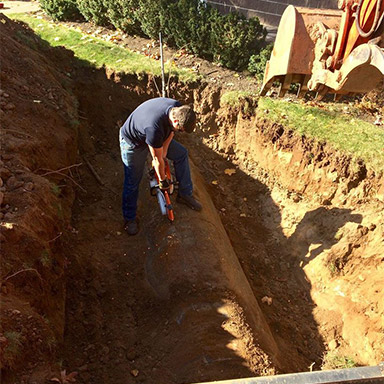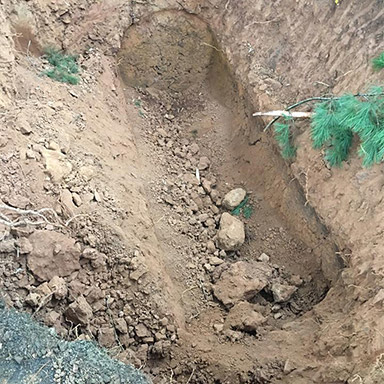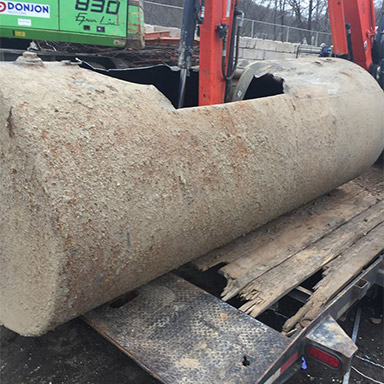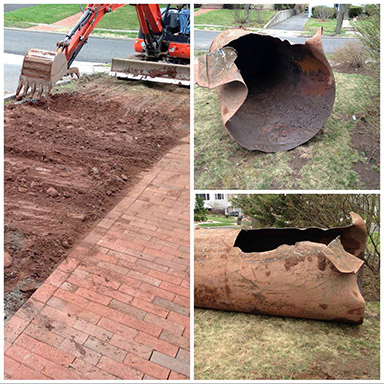Oil Tank Removal



NJ Oil Tank Background
For many decades leading through the 1990s, oil was used as the preferred method for home heating, and the oil was stored in underground storage tanks (USTs) made from bare steel. Over time, these oil tanks rust, eventually creating holes and other breaches in the tank that leak oil into the environment. The presence of petroleum or other hazardous substances extend to both health and environmental risks, including fire or explosion as well as soil and/or groundwater contamination. Unfortunately, most people were unaware of these liability concerns, and programs to regulate oil tanks and other USTs in order to protect the environment weren’t introduced until the 1980s (the EPA website has more information about underground storage tanks, their cause for concern and government response). Ultimately, this has left many New Jersey residents with the burden of a buried oil tank on their property that they may have been unaware of when purchasing the property.
Why does an oil tank need to be removed?
In most cases, we are contacted to perform an oil tank removal in NJ from a buyer, or the real estate agent of a buyer, who has learned that there is a buried oil tank (UST) on the potential property. Usually this happens when there is an oil tank sweep done on the property during the due diligence period for home inspections. The buyer is advised to under no circumstance complete a real estate transaction until the oil tank is taken care of, with the seller hiring licensed and trained professionals to complete the removal. For this reason, a common point of delay in completing a property sale in the state of New Jersey, it is always encouraged that any homeowner with an old out-of-service oil tank have it removed as soon as reasonably possible. Steel USTs do have a certain life expectancy, which depends on numerous factors including but not limited to age. Most oil tanks we encounter have not leaked, but all steel tanks will leak eventually. The possibility of corrosion that will cause contamination leading to much greater expenses than just an oil tank removal increases every day, so it’s a fact that it’s really a “the sooner, the better” type of initiative.
Performing an oil tank removal
ERC offers flat-rate oil tank removal in NJ, so when you give us a call for a free quote, the price you are accepting up front is the price you will pay to finish the job. Upon a 50% deposit, we will secure the local permits needed to perform the tank removal and obtain an underground utility mark out so that our digging does not interfere with any of your utility services. Next, we’ll get to work on on removing the oil tank. We excavate any soil and/or concrete necessary to uncover the UST, taking care to preserve any landscaping as best as possible. A large opening is then cut in the top of the oil tank, allowing our team to enter and perform a thorough cleaning process. All sludge and other contents are removed and sent to a proper recycling facility and the tank surface is squeegeed and wiped. The oil tank is then removed from the ground, at which point a local official will come to perform a visual inspection. If he or she deems there has not been a breach in the tank and contamination in the soil requiring a soil cleanup, the hole will be backfilled and the work on the property will be complete. Lastly, a report is submitted to your municipality detailing and documenting the oil tank removal. When the final permit is closed, the entire job is finished.
Detailed timeline – how oil tank removal works

Contact.
Contact us today to get started.
Call: 877-440-TANK (8265)
You can also fill out the form below and we’ll contact you within 24 hours:
Anticipate all costs from the start.
Makes it easier to close on the property.
No surprises.
All permits included.
Get an estimate within hours.

